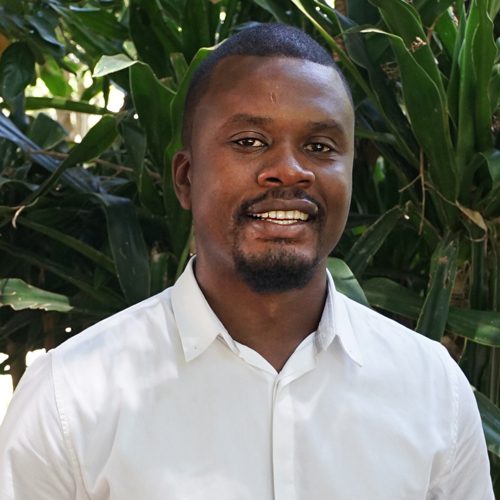Africa’s recruitment industry is a complex and diverse landscape that varies significantly from country to country. With a population of over 1.4 billion people, the African continent represents a significant pool of talent and potential, but a huge skill gap is preventing companies from filling their roles.
Despite this challenge, the recruitment industry in Africa is growing and becoming more sophisticated, with many companies recognising the importance of attracting and retaining top talent. In this article, we will look at the biggest opportunity and challenge facing the recruitment industry in Africa and how you can attract and tap into Africa’s burgeoning workforce.
Biggest Opportunity: Young, Dynamic Talent
One of the main opportunities for the recruitment industry in Africa is the growing number of young people entering the workforce. According to the African Development Bank, over 60% of the continent’s population is under the age of 25. This presents a significant opportunity for companies looking to tap into a pool of young, dynamic talent. But how do you attract them?
How To Attract Africa’s Talent
Employer Branding Is King
There is nothing more important than your brand. What I’ve seen across the recruitment industry in Africa is that candidates highly consider employer branding before making a decision. To compete with other companies, you need to invest in creating a positive brand image that highlights your culture, social responsibility initiatives, and career development opportunities.
In Africa, I’ve found that employees often prioritise factors like work-life balance and social impact when considering job opportunities. This, when looking at statistics for our entering workforce, is not at all surprising. A survey found that 42% of Gen-Z workers value work-life balance over other work perks. If you want good talent, you need to focus on your company’s work flexibility and be sure to advertise it every chance you get when hiring.
Utilise Technology
How you access the job market is also rapidly changing. Technology is playing an increasingly important role in the recruitment industry in Africa. In sub-Saharan Africa, smartphone subscriptions are expected to reach 798 million by 2027. A rapid increase from the 503.14 million in 2021. As smartphone usage increases, so does your chance to access far-reaching potential candidates, whether it be through social media (like LinkedIn or Facebook) or online job boards (like Seek or Indeed).
Online job portals are becoming quite popular, providing a platform for companies to advertise job openings and for job seekers to search for opportunities. This is particularly important in countries with limited infrastructure, where traditional methods of recruitment may not be effective.
You can also use technology to show off your company’s brand. Your website and company page on LinkedIn can be excellent tools to attract jobseekers. You can create and publish videos, connect with your own employees, and have them champion your brand.
Another benefit of technology is the data you can access. For example, you can receive analytics that give you valuable insight into how your company stacks up against your competitors.
Biggest Challenge: Lack of Training
A huge challenge facing the recruitment industry in Africa is the lack of formal education and training. While there are many talented individuals on the continent, the quality of education and training varies significantly. This can make it difficult for companies to find candidates with the right skills and qualifications.
Additionally, as the industry is relatively new, many universities and tertiary institutions (not exclusively in Africa but across the world) don’t have pathways or courses purposely centred on renewable energy. It can be difficult for students to understand how to move into the industry or obtain the necessary skills.
In the case of the Tarfaya Complex in Morocco, it’s the lack of learning opportunities and places to study that prevents locals from working. With 131 turbines and over 100 square kilometres of land, the local people, Sahrawis, only make up 2 staff members and 15 security guards out of around 60 plant workers.
While renewable energy projects are a fantastic way to provide jobs, without qualifications and learning opportunities, these roles won’t go to locals and benefit the local community.
Solution: Training & Upskilling Programs
Governments, education institutions, and companies need to invest in training our burgeoning workforce.
Having courses, internships, apprenticeships, and other means of upskilling is crucial for companies to not only build highly skilled employees that will benefit their business but also to retain them. Cooperation is key. By having governments, education institutions, and companies work together, we can increase our potential workforce.
As we’ve learned from the pandemic, everything can be flexible, including education. Being able to provide various means of obtaining qualifications could significantly help in training our up-and-coming workforce. There could be online courses or on-site training offered. It could even be more traditional and just have colleges and physical classes.
Any way to increase knowledge in the industry is crucial to not just teaching our future workforce but also helping upskill our current workers.
Africa’s recruitment industry is evolving and becoming more competitive as companies recognise the importance of attracting and retaining top talent. While there are many opportunities for growth, there are also significant challenges that need to be addressed.
To succeed in the African market, recruitment companies need to be aware of these challenges and be prepared to adapt and innovate to overcome them. Ultimately, the recruitment industry in Africa has the potential to be a significant driver of economic growth and development, providing opportunities for individuals and companies alike. With the right investments in infrastructure, education, and technology, the recruitment industry in Africa can help unlock the continent’s full potential and create a brighter future for all.












